
A Eurogame, also called a German-style board game, German game, or Euro-style game, is a class of tabletop games that generally has complex rules, indirect player interaction, and multiple ways to score points. Eurogames are sometimes contrasted with American-style board games, which generally involve more luck, conflict, and drama. They are usually less abstract than chess or Go, but more abstract than wargames. Likewise, they generally require more thought and planning than party games such as Pictionary or Trivial Pursuit.

The Spiel des Jahres is an award for board and card games, created in 1978 with the purpose of rewarding family-friendly game design, and promoting excellent games in the German market. It is thought that the existence and popularity of the award was one of the major drivers of the quality of games coming out of Germany, particularly in the 1980s and 1990s. A Spiel des Jahres nomination can increase the typical sales of a game from 500–3,000 copies to around 10,000, and the winner can usually expect to sell as many as 500,000 copies.

Bohnanza is a German-style card game based on the game mechanics of trading and politics, designed by Uwe Rosenberg and released in 1997 by Amigo Spiele and by Rio Grande Games. It is played with a deck of cards with comical illustrations of eleven different types of beans of varying scarcity, which the players are trying to plant and sell in order to earn money. The principal restriction is that players may only farm two or three types of beans at once, but they obtain beans of all different types randomly from the deck and so must engage in trade with the other players to be successful.

Days of Wonder is a board game publisher founded in 2002 and owned by Asmodee Group since 2014. Days of Wonder distributes its games to 25 countries. It specializes in German-style board games and has branched out to include some online games. Days of Wonder has published games in several languages including English, Dutch, French, German, Russian, and Greek. Days of Wonder was co-founded by Eric Hautemont, Mark Kaufmann and Yann Corno.

Ticket to Ride is a series of turn-based strategy railway-themed Eurogames designed by Alan R. Moon, the first of which was released in 2004 by Days of Wonder. As of 2024, 18 million copies of the game have been sold worldwide and it has been translated into 33 languages. Days of Wonder has released electronic versions of the board games in the series, as well as Ticket to Ride-themed card games and puzzles.
Mayfair Games was an American publisher of board, card, and roleplaying games that also licensed Euro-style board games to publish them in English. The company licensed worldwide English-language publishing rights to The Settlers of Catan series between 1996 and 2016.

Amigo Spiele is a German board and card game publisher. Many of their games have won Spiel des Jahres awards, and many have been published in English by Rio Grande Games.
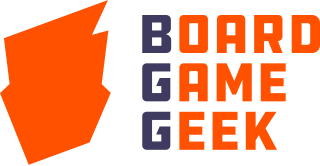
BoardGameGeek (BGG) is an online forum for board gaming hobbyists and a game database that holds reviews, images and videos for over 125,600 different tabletop games, including European-style board games, wargames, and card games. In addition to the game database, the site allows users to rate games on a 1–10 scale and publishes a ranked list of board games.
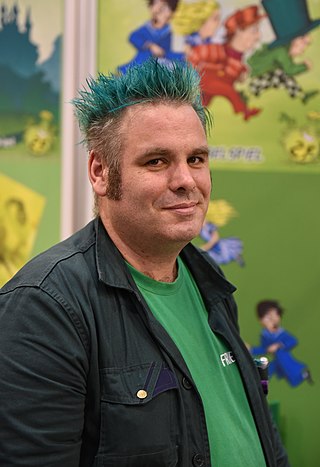
Friedemann Friese is a German board game designer, currently residing and working in Bremen. His trademarks are his green-colored hair and games whose titles begin with the letter "F". The majority of his games, self-published by his company 2F-Spiele, also sport a green color scheme. He is known for his absurd and humour-themed games. Many of his games feature artwork from game artist Harald Lieske.

Queen Games is a German publisher of tabletop games, based in Troisdorf and founded in 1992 by head Rajive Gupta, which specialises primarily in German-style, family-level games but has also published smaller numbers of both simpler, children's games and more complex, gamers' games.
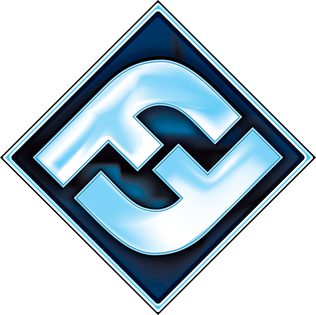
Fantasy Flight Games (FFG) is a game developer based in Roseville, Minnesota, United States, that creates and publishes role-playing, board, card, and dice games. As of 2014, it is a division of Asmodee North America.
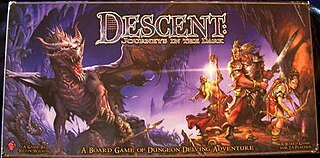
Descent: Journeys in the Dark is a two to five player high fantasy dungeon crawl published by Fantasy Flight Games in 2005. Descent was designed and produced by Kevin Wilson. The game is based on an improved version of the mechanics of FFG's licensed Doom: The Boardgame. In Descent, players take the roles of adventurers who delve into underground complexes in search of treasure. One player takes the role of the Overlord, who controls the enemies and plays cards to hinder the hero players. Descent differs from other games in the genre in that the Overlord player's goal is to win by exhausting the other players of victory points, rather than merely to facilitate play. The Overlord's resources are limited by the rules of the game, which require them to hoard and expend "threat" points, which are generated in response to the hero players' actions, in order to hamper the other players and to bring out additional monsters to defeat them. This mechanism is very much reminiscent of The Lord of the Rings when playing with the Sauron optional expansion.
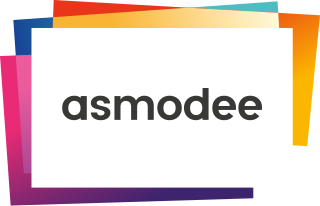
Asmodee is a French publisher of board games, card games and role-playing games (RPGs). Founded in 1995 to develop their own games and to publish and distribute for other smaller game developers, they have since acquired numerous other board game publishers. A division, Twin Sails Interactive, publishes video game adaptations of Asmodee games.

Agricola is a Euro-style board game created by Uwe Rosenberg. It is a worker placement game with a focus on resource management. In Agricola, players are farmers who sow, plow the fields, collect wood, build stables, buy animals, expand their farms and feed their families. After 14 rounds players calculate their score based on the size and prosperity of the household.

Z-Man Games is an American board game company, incorporated in 1999. It was named after its founder, Zev Shlasinger. The company is known for their Pandemic series of board games, as well as being the sole publisher for the English editions of popular Eurogames, such as Carcassonne and Terra Mystica.

Uwe Rosenberg is a German game designer and the co-founder of Lookout Games. He initially became known for his card game Bohnanza, which was successful both in Germany and internationally. He is more recently known for developing many highly-acclaimed strategy games, such as Agricola and A Feast for Odin. As of March 2023, his games held six of the entries on BoardGameGeek.com's top-100 board games of all time.

Le Havre is a board game about the development of the town of Le Havre. It was inspired by the games Caylus and Agricola and was developed in December 2007.

Marcel-André Casasola Merkle is a game designer.

Jaipur is a two-player card game created by Sébastien Pauchon in 2009 and published by Asmodee. Players assume the roles of powerful merchants in Jaipur, the capital of Rajasthan. The aim is to receive two "seals of excellence" and be invited to the court of the Maharaja. The game focuses on buying, exchanging, and selling at better prices, all while keeping an eye on both your camel herds.

Patchwork is a two-player board game created by Uwe Rosenberg. It was released in 2014.



















